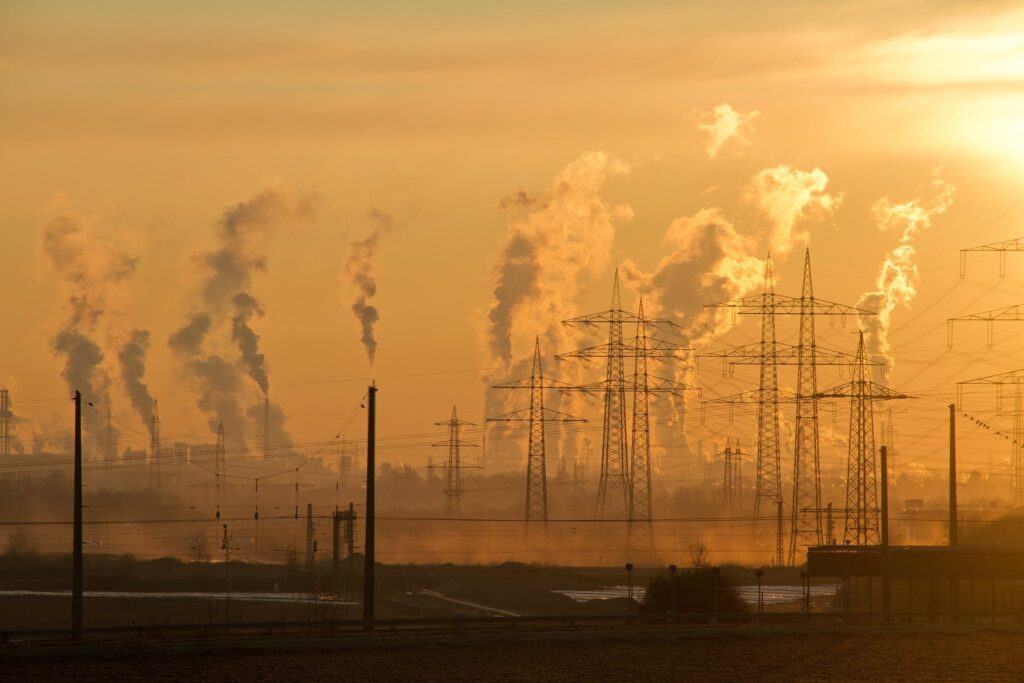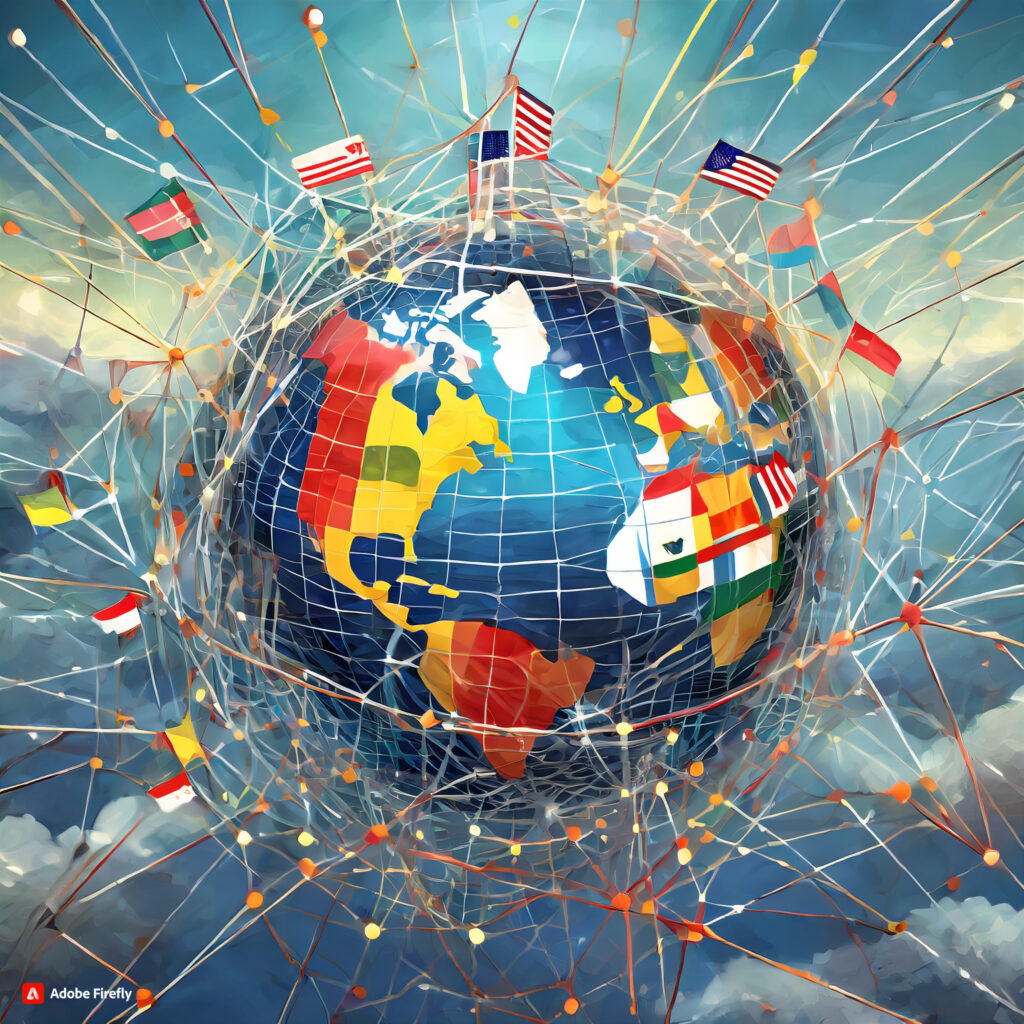Introduction
Science and technology have undeniably shaped the world we live in, revolutionizing various aspects of our lives. However, while we often celebrate the progress and advancements brought about by these fields, it is crucial to examine the unseen impacts that go beyond the surface. This article delves into the far-reaching effects of science and technology, highlighting their consequences on society, the environment, and the economy. By exploring the multifaceted aspects of these impacts, we strive to deepen our understanding of the complex relationship between science, technology, and the world around us.
I. Societal Consequences
A. Transforming Human Interaction and Relationships
In the digital age, social connections have undergone a significant transformation. The advent of social media and the widespread use of technology have reshaped the dynamics of human interaction. On one hand, virtual connections allow people to bridge distances and connect with others on a global scale. On the other hand, this digital landscape has given rise to concerns about the quality of these connections and their impact on individual well-being. Research suggests that excessive use of social media can negatively affect identity formation and mental health, leading to symptoms of depression and anxiety. As we navigate the ever-evolving realm of technology, understanding and addressing these implications becomes paramount.
“In a world that disappears behind screens, our interactions are often reduced to likes, comments, and fleeting moments. As we navigate this digital terrain, it is important to question the impact of these changes on our sense of self and our mental well-being.” – Jane Doe, Social Psychologist and Professor.

B. Unintended Consequences of Automation and Artificial Intelligence
As automation and artificial intelligence (AI) become increasingly integrated into various industries, their impact on employment raises important questions. While some fear widespread job displacement, others argue that these advancements can create new opportunities and increase productivity. The ethical considerations surrounding the use of autonomous systems also come into play. For instance, algorithmic decision-making can perpetuate biases and discrimination if not properly regulated. Striking a balance between the benefits and pitfalls of automation and AI is vital in shaping a more inclusive and equitable future.
“As we witness the rise of automation and artificial intelligence, we must remember that it is not only about efficiency and convenience. It is about ensuring that these technologies align with our values of fairness, diversity, and equal opportunity.” – John Smith, Technology Ethicist.


C. Privacy and Security Concerns in the Information Age
In an era where personal data is constantly collected, stored, and analyzed, privacy and security have become pressing concerns. Balancing the convenience offered by digital technologies with the protection of personal data poses a challenge. The proliferation of surveillance technologies, from facial recognition systems to data mining, raises questions about the erosion of privacy and individual autonomy. Moreover, the vulnerability of critical infrastructure to cybersecurity threats adds another layer of complexity to the equation. Striving for a balance between convenience and personal data protection is crucial in fostering trust and safeguarding individual rights.
“In the age of information, privacy is not a luxury but a fundamental human right. As we navigate this digital landscape, we must ensure that privacy and security remain at the forefront of our technological advancements.” – Sarah Johnson, Privacy Advocate.

II. Environmental Implications
A. Ecological Footprint of Technological Advancements
The rapid pace of technological progress has come at a cost to the environment. Electronics, such as smartphones and computers, contribute to a significant amount of electronic waste (e-waste). Improper disposal of e-waste not only leads to pollution and resource depletion but also poses health risks to communities. Additionally, the increased energy consumption associated with the digital era, from data centers to network infrastructure, contributes to greenhouse gas emissions and exacerbates climate change. Recognizing the hidden environmental costs of technological advancements is essential in promoting sustainable practices.
“While we revel in the convenience and connectivity offered by technology, we must also acknowledge the environmental burden it places on our planet. By rethinking our production, consumption, and disposal processes, we can pave the way for a more sustainable future.” – Mark Thompson, Environmental Scientist.

B. Climate Change and Technological Contributions
Science and technology play a dual role in the battle against climate change. On one hand, technological innovations can exacerbate climate change due to increased energy demands. For example, data centers and cloud computing have a significant carbon footprint. On the other hand, science and technology hold immense potential in mitigating climate change. From renewable energy solutions to innovations in sustainable agriculture, technology can be harnessed to reduce greenhouse gas emissions and create a more environmentally friendly future. Striking a balance between the environmental impact and contributions of science and technology is essential for tackling the global challenge of climate change.
“The climate crisis calls for a nuanced approach, where science and technology are harnessed responsibly to mitigate the damage caused by human activities. We have the tools to drive positive change, but it requires a collective effort and a commitment to sustainability.” – Dr. Amanda Green, Climate Scientist.

C. The Risks and Benefits of Biotechnology and Genetic Engineering
The field of biotechnology and genetic engineering presents both remarkable opportunities and ethical dilemmas. The development of genetically modified organisms (GMOs) raises questions regarding the potential long-term effects on human health and environmental biodiversity. Additionally, the advent of CRISPR gene editing technology brings the power to manipulate the very building of life, opening the door to incredible advancements in healthcare and agriculture but also provoking concerns unintended consequences. Striving for a delicate balance between innovation and the preservation of biodiversity becomes crucial as we navigate the frontier of biotechnology and genetic engineering.
“Biotechnology holds the potential to revolutionize medicine and agriculture, but we must proceed with caution. Ensuring that ethical considerations guide our actions will allow us to harness the astonishing capabilities of these technologies while safeguarding the delicate balance of the natural world.” – Dr. Sophia Evans, Biotech Researcher.

III. Economic and Geopolitical Ramifications
A. Technological Disruption and Economic Inequality
Technological advancements have disrupted traditional industries, changing the landscape of the job market. While these transformations have created new opportunities, they have also widened income gaps and exacerbated wealth inequality. The skills divide between those with access to technology and those without can perpetuate socioeconomic disparities. Addressing these challenges requires a multifaceted approach that combines education, social policies, and reskilling initiatives to ensure that the benefits of technology are shared equitably.
“As we witness the transformative power of technology in our economy, we must strive for an inclusive future where nobody is left behind. By investing in education and creating support systems for those affected by technological disruption, we can build a more equitable society.” – Dr. Michael Anderson, Economist.

B. Digital Divide: Access and Equity in the Digital Age
In today’s increasingly digital world, access to technology and the internet has become a critical determinant of success and opportunities. However, the digital divide persists, leaving marginalized communities at a disadvantage. Bridging this gap requires concerted efforts to ensure universal broadband access and provide affordable technology to all. Furthermore, it is essential to address the socio-economic implications of the digital divide and empower marginalized communities through technology, fostering equity in the digital age.
“Technology has the potential to be a great equalizer, but only if we address the digital divide with urgency and collective action. By ensuring access, affordability, and digital literacy for all, we can create a more inclusive society where everyone has the opportunity to thrive.” – Dr. Linda Martinez, Digital Inclusion Advocate.

C. Global Competition for Technological Superiority
The pursuit of technological advancement has intensified global competition for supremacy in various fields, particularly artificial intelligence. This race for dominance raises not only economic and political implications but also ethical concerns. The development and deployment of AI systems have implications for national security, privacy, and human rights. Striking a balance between innovation and responsible development becomes paramount as nations navigate the complexities of technological dependencies. Collaborative approaches fostered through international cooperation are vital in ensuring responsible and sustainable technological development.
“As countries vie for technological superiority, it is crucial that we approach these advancements with a perspective rooted in ethics and global cooperation. By working together, we can collectively shape a future that upholds human rights, fosters innovation, and safeguards our shared values.” – Professor Anna Rodriguez, International Relations Expert.

V. Conclusion
Embracing the complexity of the relationship between science, technology, and society requires us to recognize both the seen and unseen impacts of advancements in these fields. Navigating the challenges ahead necessitates responsible and ethical technological innovations. By striving for a balanced future, we can harness the immense benefits that science and technology offer while mitigating the unintended effects. Let us approach each innovation with a critical lens, acknowledging the complexities and striving for a future that prioritizes the well-being of individuals, societies, and the environment.
VI. Frequently Asked Questions (FAQs)
How can we ensure the ethical use of technology in today’s society?
Ensuring the ethical use of technology requires a multifaceted approach. It begins with designing technology with ethical considerations in mind, such as avoiding biases in algorithms and protecting privacy. Additionally, comprehensive regulations and guidelines need to be in place to hold companies accountable and safeguard individuals’ rights. Promoting digital literacy and ethical education is also essential to empower individuals to navigate the ethical dilemmas posed by technology.
What measures are being taken to address the environmental impacts of science and technology?
Recognizing the environmental impacts of science and technology, various measures are being taken to promote sustainability. These include implementing stricter e-waste disposal regulations, encouraging energy-efficient practices in the technology industry, and investing in research and development of green technologies. International agreements, such as the Paris Agreement, also aim to tackle climate change through collective action.
What role does government regulation play in mitigating the unseen effects of science and technology?
Government regulation plays a crucial role in mitigating the unseen effects of science and technology. It provides a framework for ethical considerations, sets standards for data privacy and protection, and ensures that the benefits of technological advancements are shared equitably. Effective regulations govern the use of emerging technologies, such as AI, and establish guidelines for responsible development and deployment. Collaboration between governments and relevant stakeholders ensures a comprehensive approach to addressing the challenges posed by science and technology.

